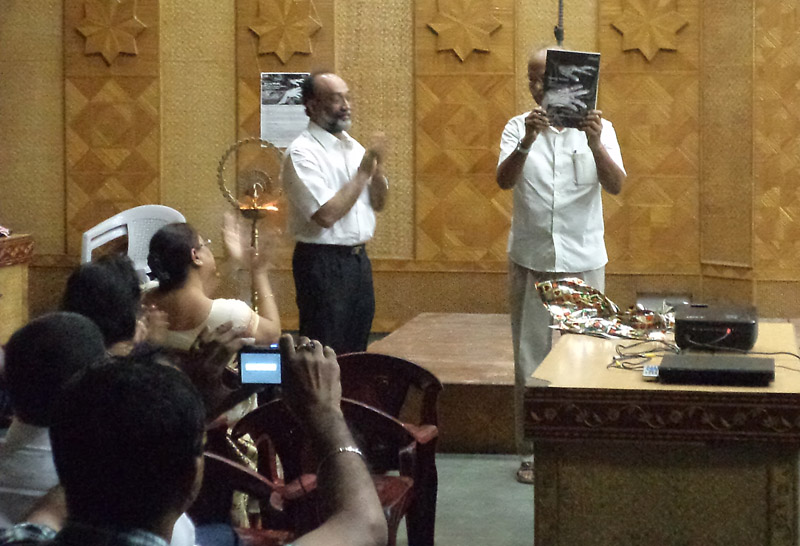
Launch of report in Assam
An attentive and large audience listened in pin-drop silence to powerful testimony and presentations from a leading Assamese novelist as well as a top scholar of the region at today’s North-east launch of the C-NES report on the impact of conflict on women in the region.
“We all have suffered, we have faced trauma and tragedy but we must move forward,” said Arupa Patangia Kalita,the acclaimed writer, in a moving talk where she shared how she had personally felt the sting of loss of friends, colleagues and close ones in the conflict across Assam. Ms. Patangia, who said that she had been moved to tears by the documentary film she had just seen on the impact of conflict on women in Assam and Nagaland, added that critical challenges which women faced — from domestic violence, to suffereing at the hands of the state or armed groups — needed not just to be faced but also understood in depth.
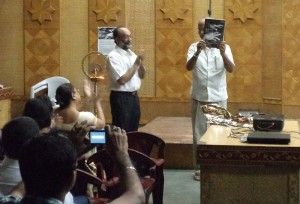 | 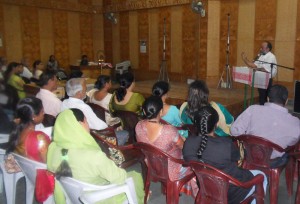 |
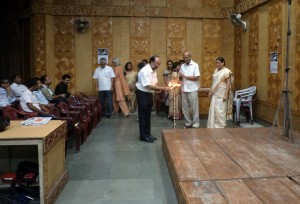 | 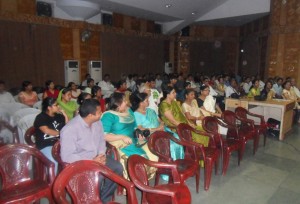 |
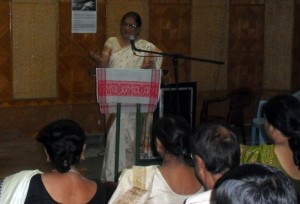 | 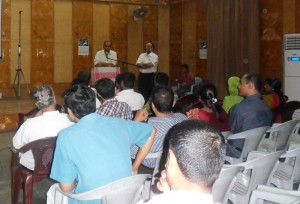 |
Prof. AC Bhagwati, noted anthropologist and former Vice Chancellor of Rajiv Gandhi University in Arunachal Pradesh, remarked that the Report had not just brought out the crisis before women in the region but also demonstrated that “textual work” among academics and scholars had failed to focus on such critical questions.
Earlier, Prof. Bhagwati lit the ceremonial lamp before unwrapping the report to formally release it and also opening an exhibition of photographs by Kausiki Sarma. The programme was held at the ITA conference hall at Machkhowa, Guwahati, where it will continue till 25th October.
“This is the kind of work that we should have been doing in our universities but we have become too comfortable and that is why this work is so relevant, moving and transparent — as well as challenging, it challenges all of us to work for a change,” Prof. Bhagwati added. He said the report was detailed, and paid tribute to its rigour and methodology.
Sanjoy Hazarika, who introduced the three-day event and described the background of the report, said that at times he and others at C-NES were asked why they had decided to take up such a sensitive subject, that resonated of conflict and its accompanying tranma. “It’s simple,” he remarked, ‘Our very first mandate, when we started C-NES in 2000 is to work to ensure that people could live in conditions of peace and safety because it is only in such an environment that they can fulfil their potential.” The public’s fear of the State and its lack of knowledge of rights and laws – except the perception that rules were mean to protect law enforcers and not the public — was another widespread perception that needed to be changed, he said.
The meeting was attended by academics and media, leaders of the Non-Government field professionals and film makers as well as students and researchers. on Sunday, the film ‘A Measure of impunity’ will have its public premiere in the NER at 3 pm followed by a panel discussino with prominent schoalrs and figures such as Prof. Patangia, Prof. Udayon Misra, Ms. Ratna Bharali Talukdar, Mr. Dileep Chandan, editor, Asom bani, and Prof. Mahfuza Rahman of Cotton Ciollege. The photo exhibition by Kausiki Sarma on the project closes on 25th October.
The programme then moves into its final phase at Kohima, Nagaland, where the release of the report, screenings and photo exhibition will be held on Oct. 28-29.